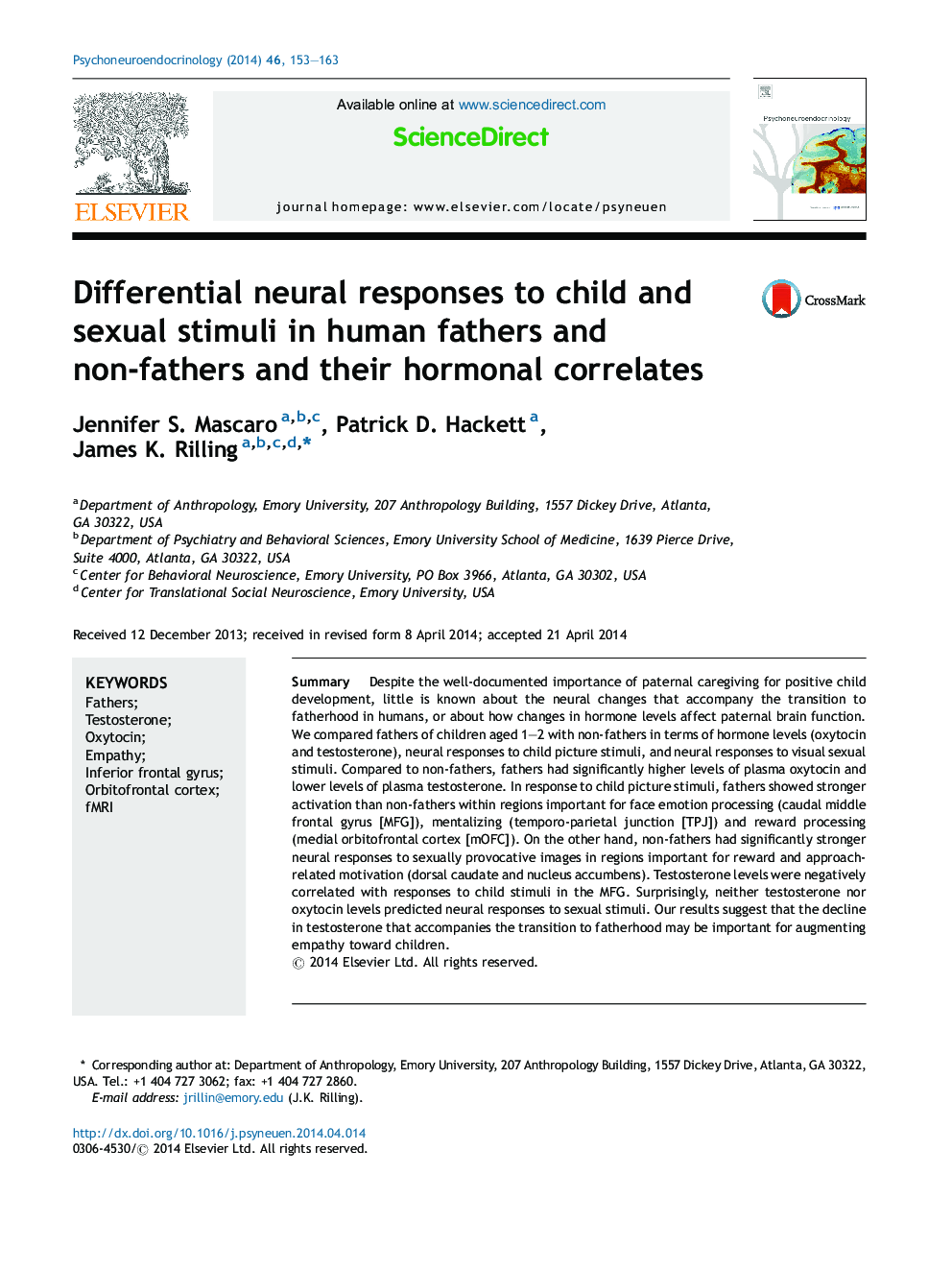| کد مقاله | کد نشریه | سال انتشار | مقاله انگلیسی | نسخه تمام متن |
|---|---|---|---|---|
| 6819815 | 547113 | 2014 | 11 صفحه PDF | دانلود رایگان |
عنوان انگلیسی مقاله ISI
Differential neural responses to child and sexual stimuli in human fathers and non-fathers and their hormonal correlates
ترجمه فارسی عنوان
پاسخ های عصبی دیفرانسیل به کودکان و محرک های جنسی در پدران و غیر پدران و همبستگی های هورمونی آنها
دانلود مقاله + سفارش ترجمه
دانلود مقاله ISI انگلیسی
رایگان برای ایرانیان
کلمات کلیدی
موضوعات مرتبط
علوم زیستی و بیوفناوری
بیوشیمی، ژنتیک و زیست شناسی مولکولی
علوم غدد
چکیده انگلیسی
Despite the well-documented importance of paternal caregiving for positive child development, little is known about the neural changes that accompany the transition to fatherhood in humans, or about how changes in hormone levels affect paternal brain function. We compared fathers of children aged 1-2 with non-fathers in terms of hormone levels (oxytocin and testosterone), neural responses to child picture stimuli, and neural responses to visual sexual stimuli. Compared to non-fathers, fathers had significantly higher levels of plasma oxytocin and lower levels of plasma testosterone. In response to child picture stimuli, fathers showed stronger activation than non-fathers within regions important for face emotion processing (caudal middle frontal gyrus [MFG]), mentalizing (temporo-parietal junction [TPJ]) and reward processing (medial orbitofrontal cortex [mOFC]). On the other hand, non-fathers had significantly stronger neural responses to sexually provocative images in regions important for reward and approach-related motivation (dorsal caudate and nucleus accumbens). Testosterone levels were negatively correlated with responses to child stimuli in the MFG. Surprisingly, neither testosterone nor oxytocin levels predicted neural responses to sexual stimuli. Our results suggest that the decline in testosterone that accompanies the transition to fatherhood may be important for augmenting empathy toward children.
ناشر
Database: Elsevier - ScienceDirect (ساینس دایرکت)
Journal: Psychoneuroendocrinology - Volume 46, August 2014, Pages 153-163
Journal: Psychoneuroendocrinology - Volume 46, August 2014, Pages 153-163
نویسندگان
Jennifer S. Mascaro, Patrick D. Hackett, James K. Rilling,
